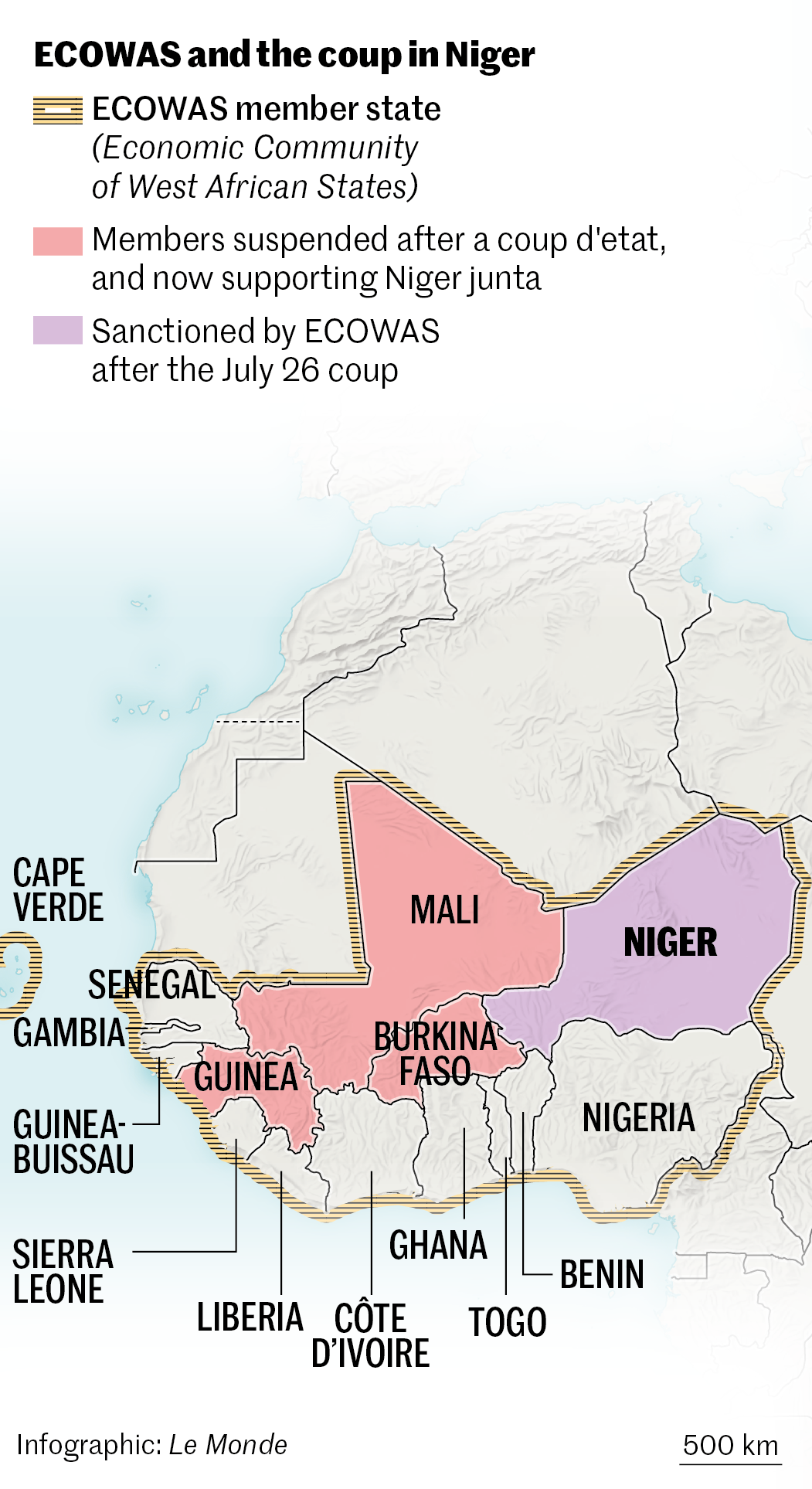Niger’s military rulers, who seized control of the government in July, had given the French envoy to the country 48 hours to leave on Friday.
France’s ambassador to Niger is still in the coup-hit Sahel country despite an ultimatum from the new army leaders to leave his post, French President Emmanuel Macron said on Monday. August 28. During a major foreign policy speech to ambassadors gathered in Paris, Macron confirmed that French envoy Sylvain Itté was listening in from Niger’s capital Niamey despite being given a 48-hour deadline to leave the country last Friday.
“France and its diplomats have faced particularly difficult situations in some countries in recent months, from Sudan, where France has been exemplary, to Niger at this very moment and I applaud your colleague and your colleagues who are listening from their posts,” he said.
Niger President Mohamed Bazoum was toppled on July 26 and has been detained along with his family at the presidential palace in a coup that has been condemned by France and most of Niger’s neighbors.
On Friday, Niger’s foreign ministry announced that French ambassador Itte had 48 hours to leave, saying he had refused to meet with the new rulers and citing French government actions that were “contrary to the interests of Niger”.
Macron insisted that France would not change its position in condemning the coup and offering support to Bazoum, stressing he had been democratically elected and was being “courageous” by refusing to resign. “Our policy is clear: We do not recognize the putschists,” Macron said. “Our policy is clear: we do not recognise the putschists,” Macron said, adding that they were “abandoning the fight against terrorism”.
The impoverished Sahel region, which lies south of the Sahara, has suffered what Macron called an “epidemic” of coups in recent years, with military regimes replacing elected governments in Mali, Burkina Faso and Guinea as well as Niger. The changes have led to the creation of new military governments hostile to France, a former colonial power in West Africa which has troops across the region engaged in fighting Islamist groups. France intervened militarily to beat back advancing extremists in Mali in 2013 at the request of the then Malian government.
Current military regimes in Mali and Burkina Faso have forged closer ties with Russia, which Macron referred to as a “neo-imperialist” power. “We can’t give ground to the narrative used by the putschists which boils down to saying, ‘our enemy has become France’,” said Macron.
Macron said the new regime in Niger was bad for local people because the “putschists are putting them in danger because they are abandoning the fight against terrorism, because they are abandoning good economic policies, and they are in the process of losing international financing which enabled them to emerge from poverty.” France needed an approach in Africa of “neither paternalism, not weakness,” he added.
The European Union expressed its “full support” for the French ambassador to Niger. “The decision of the putschists to expel the French ambassador is a new provocation which cannot in any way help to find a diplomatic solution to the current crisis,” said Nabila Massrali, EU spokeswoman for foreign affairs, adding that the EU “does not recognise” the authorities that seized power in Niger on July 26.
Germany also expressed concerns Monday about the anti-French mood in Niger. “We are concerned that the military is stirring things up against the French and we are keeping a watchful eye on things,” Foreign Ministry spokesman Christian Wagner told a government press conference.

Source: Le Monde









